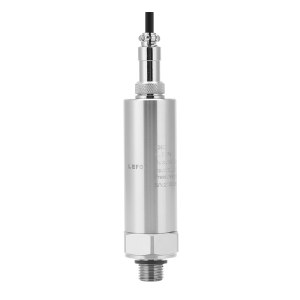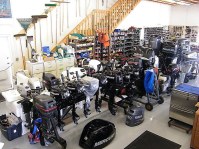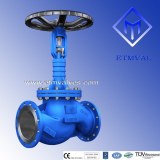LEFOO LFT2800 pressure transmitter is widely used in the measurement of fluid medium pressure in test systems such as fire protection, water treatment, water supply systems, air compressors, pneumatic devices, and factory automation. It has excellent anti-corrosion and anti-wear performance, adopts ASIC technology, MEMS technology, digital compensation, and can be used in various complex environments.
Features:
* Oil-filled silicon core with high overload capacity
* Excellent corrosion and wear resistance
* Using ASIC technology, digital compensation
* Can be used in a variety of complex environments
Features of Oil-filled Diffusion Silicon Pressure Transmitter LFT2800
Oil-filled silicon core with high overload capacity
Excellent corrosion and wear resistance
Using ASIC technology, digital compensation
Can be used in a variety of complex environments
Applications of Oil-filled Diffusion Silicon Pressure Transmitter LFT2800
Match various data collection terminal equipment such as Frequency Converter, Signal Isolator, pressure control device, and PLC in applications as below.
Air compressors
Automation equipment
Ammonia detection equipment
Airtightness testing equipment
Building automation
Chemistry experiment equipment
Factory automation
Firefighting Equipment
Fire extinguishing gas tank
Gas alarm
Heating tube manufacturer
Hydraulic oil pressure detection
Injection pump
Low-speed unmanned vehicle brake control
Medical gas system
Medical supporting equipment
New energy technology and equipment manufacturing
Ozone detection equipment
pneumatic devices
Power energy equipment
Smart water valve
Vacuum pump
Urban drainage system monitoring
Water supply systems
Water treatment, processing
Watertank pressure measuring
Accessories
More so than other industrial devices, pressure sensors/pressure transmitters/pressure transducers, are frequently used in conjunction with complementary instruments, like pressure switches, pressure gauges, and digital pressure controllers. with the addition of these devices, pressure transmitters increase instability with no margins of error generated from industrial energy instruments by magnetic chaos. They may also be equipped with electric contacts that sound alarms, turn on signal lights, or control a valve or pump. Two specific examples of accessories used to increase the functionality of gauges are test point adapters and gauge isolators. Test point adapters fit gauges and allow them to screw onto various points within the system, enabling a wide range of test pressure measurements without the purchase of multiple, separate gauges. Gauge isolators turn a pressure gauge into an “on/off” mechanism by mounting between a gauge and its circuit; unless a button is activated, the gauge will not be exposed to and will not read fluid pressure.
Many accessories for pressure transmitters have protective purposes. As sophisticated industrial instruments, pressure transmitters face a variety of threats such as pipe vibration, water condensation, etc. The aforementioned gauge isolator also serves a safety function by protecting a pressure transmitter's internal mechanism from sudden pressure spikes. Snubber dampers provide a similar function by damping intense fluctuations in pressure. A variety of case protectors can be purchased to protect the exterior of a gauge from hard shocks, while chemical seals are available to protect pressure transmitters from being corroded or plugged up. While pressure gauges generally do not require a high level of maintenance, investing in protective accessories is one of the best things gauge users can do to protect and extend the life of a gauge.
Considerations
When choosing a pressure transmitter for a specific application, several factors should be taken into account. Some of the major considerations include the size of the dial, the size of the connection or port the gauge will be used, units of measurement that the pressure transmitter is capable of (e.g. PSI, mmHg, PA, etc.), compatibility of gauge material with the operating conditions (including temperature, corrosiveness, etc.). and whether the gauge should be dry or liquid-filled (the latter tends to have longer life due to shock absorption).
One of the most important factors to consider is the pressure range. Generally speaking, you should use a pressure transmitter that is able to read at least twice the amount of the expected working pressure. This provides a reasonable margin of safety for using the pressure transmitter. As a rule of thumb, operating pressure should never go above three-quarters of a pressure transmitter's reading range. A corollary of the rules of thumb involving pressure is the importance of choosing application-specific pressure gauges. Hydraulic systems, for example, should only utilize hydraulic gauges designed for operating under normal conditions in hydraulic environments.
For even greater accuracy – as well as greater speed, reliability, and durability – digital pressure transmitters should be used in place of pressure gauge devices (despite their cheap expense). Keep in mind, however, that the limitations of transmitter devices can often be overcome with the variety of accessories available for pressure transmitters. (For example, some temperature transmitters possess temperature compensation equipment and multiple calibrate circuit to enhance the accuracy of their readings.)
Since so many factors constitute proper pressure transmitter selection, investing in a quality pressure transmitter provider is one of the best choices that consumers can make. You should focus on finding a reputable provider that offers a broad array of pressure sensing/ control products and/or services (e.g. recalibration services.) Working with a quality supplier will ensure that you are able to maximize the usefulness and effectiveness of your pressure transmitter for your particular application.
If you are looking for a reliable pressure transmitter manufacturer don't hesitate to contact us!
For more information about peristaltic pump price, please feel free to contact us!
Location : No.118, Changda Road, Linping Street, Yuhang District, Hangzhou, Zhejiang, 311100 China, 311100 Yuhang District,
Contact : group lefoo, 0571 89363666








